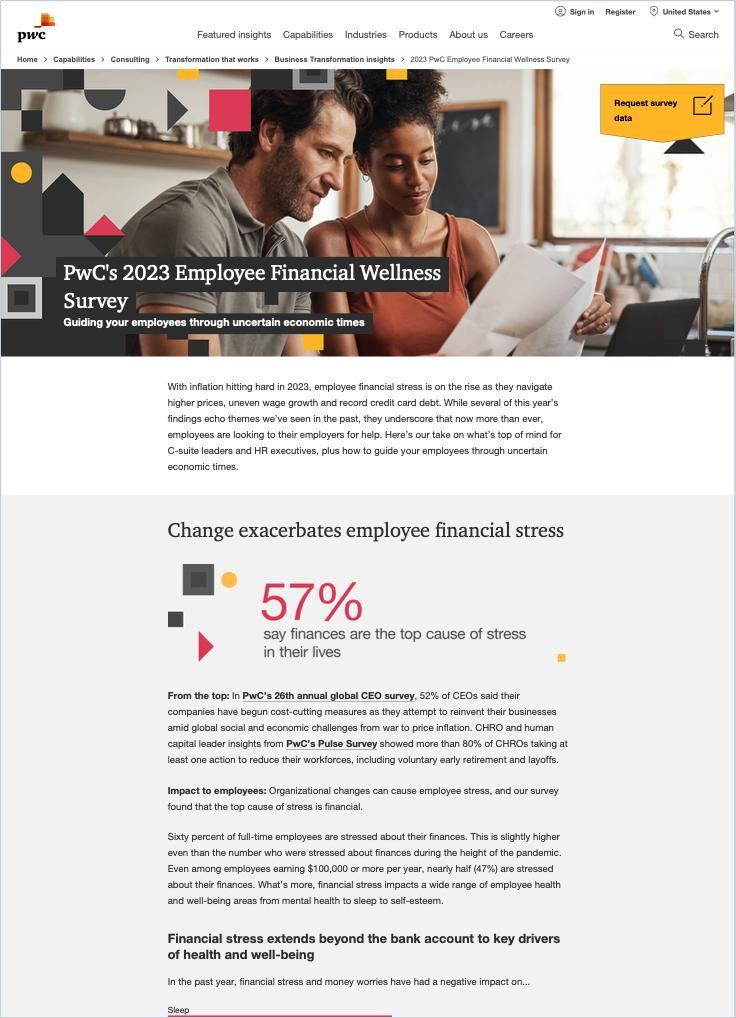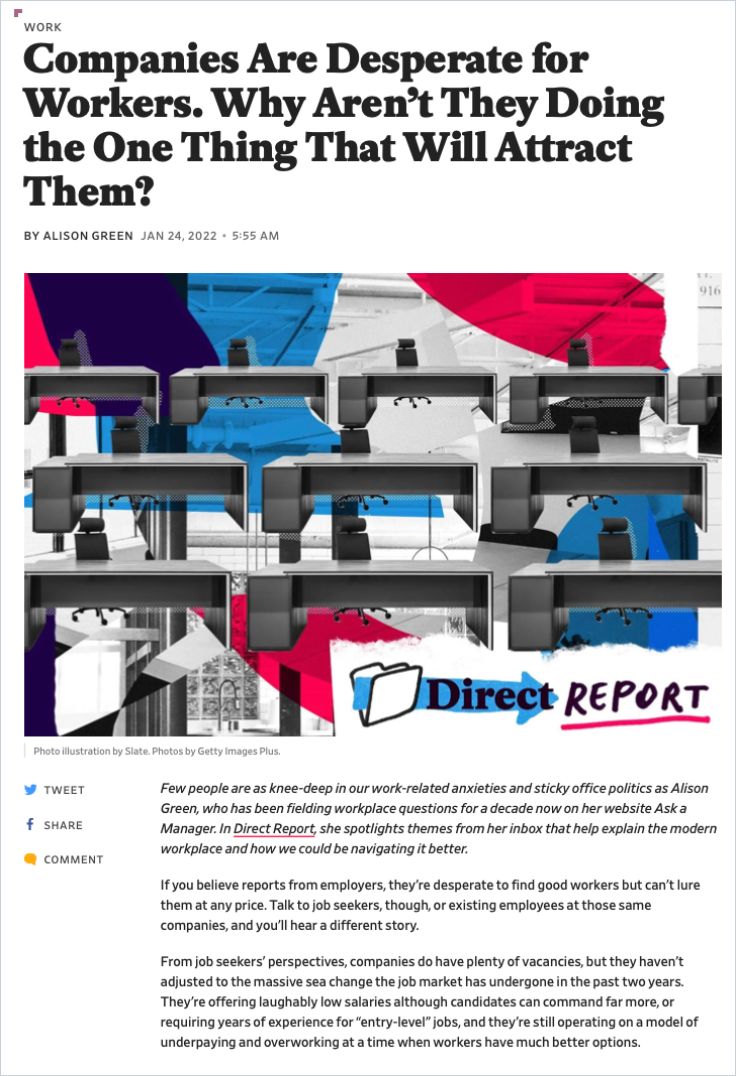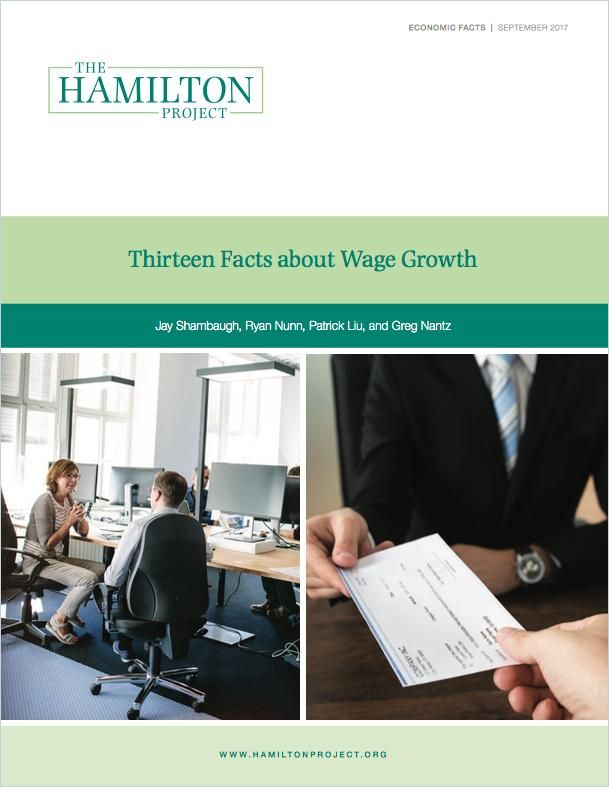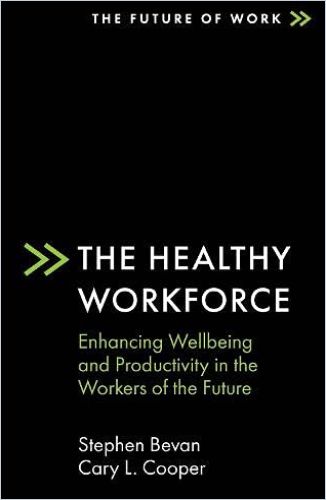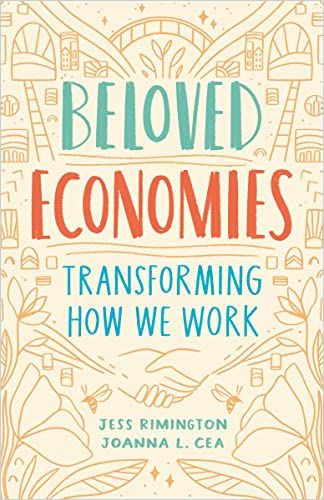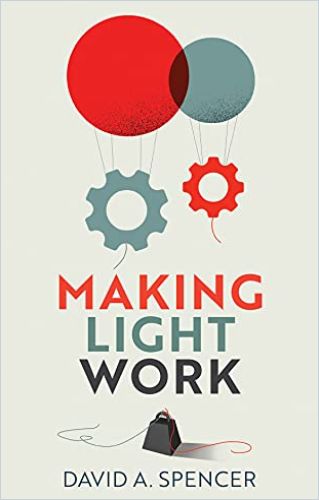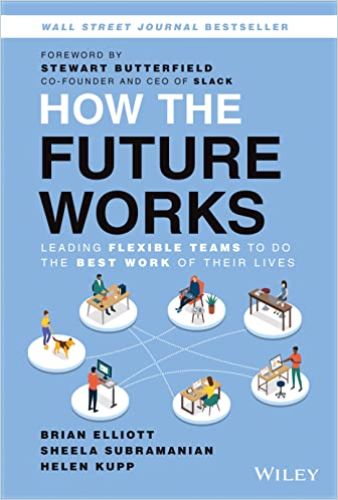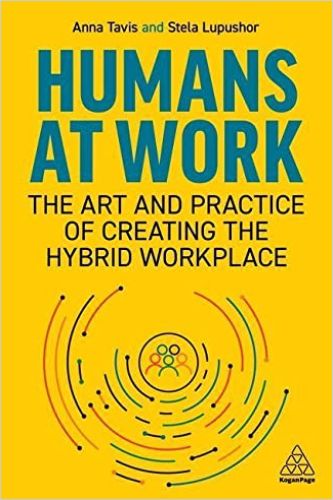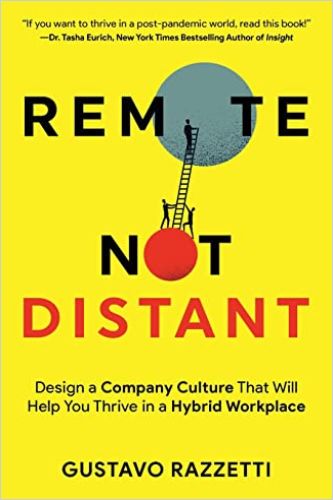Employee Financial Well-Being: Also a Leader’s Business

Let’s face it: Earning a living is still the number one reason why most of your team members show up to work every day. Yes, people seek purpose and meaning in their jobs – but being part of a noble mission doesn’t do away with the fact that people have mortgages and student loans to pay off. And what about John’s daughter’s expensive dental treatment, Karen’s roof repair bill and Jim’s unexpected car issues?
According to PwC’s 2023 Employee Financial Wellness Survey, 60% of full-time employees are stressed about finances.
The impact of financial stress reverberates beyond a strained bank account. Survey participants reported that financial stress affected their overall health and well-being, including mental health, sleep quality and self-esteem.
Indeed, a third of the full-time employees surveyed said that money worries negatively impact their productivity at work.

Financially stressed employees are not just less engaged but also more likely to leave – a problem for employers considering widespread talent and labor shortages.
Personal finances have long been considered taboo. According to a YouGov-YuLife survey, only 21% of people are comfortable discussing financial stress with their employer. Hence, employers should proactively offer support and foster open conversations about financial issues. This could help dispel the stigma and enable the creation of effective financial policies that cater to employees’ specific needs.
By taking this bold step, you will likely find a receptive audience: The YouGov-YuLife survey found that almost half of employees – even more among younger generations – believe it to be an employer’s responsibility to improve people’s sense of financial well-being.
So what concrete steps can you as a leader take to help ease financial stress? Here are two suggestions:
Offer Competitive Pay and Benefits
There is no way around it: Ensuring that people are adequately compensated is a must, considering rising inflation and cost of living. Employees who earn less each month will be hard to motivate to perform better even with non-monetary incentives, Michael Wiederstein explains in the getAbstract Journal.
When it comes to benefits, ensure employees understand how these align with employees’ financial needs. According to research by PwC, employees are more likely to use and value these benefits if they understand how a specific benefit helps them with a personal financial goal.
Also, you will want to consider tailoring benefits to employees’ life situations and career stages. For some employees, student debt may be a significant source of financial stress – so you will want to offer a program to help them repay their student loans. Others may worry about their lack of retirement savings, so you will want to highlight programs that facilitate saving and investing, such as automatic enrollment in a retirement plan or matching contributions.
For others still, a source of financial stress may be childcare and commuting costs, so offering flexible work arrangements, including home-office days, can go a long way. Meanwhile, younger employees without family commitments may appreciate the opportunity to earn additional income by taking on extra projects or working overtime.
Find out more on what constitutes fair pay and a living wage in David Buckmaster’s illuminating discussion, Fair Pay.
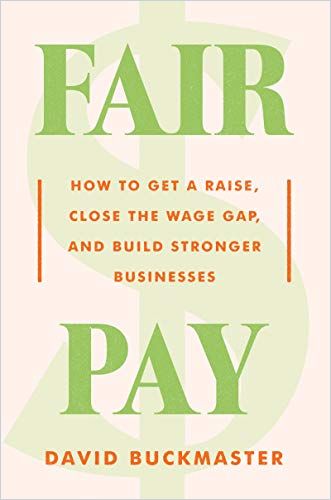
Provide Financial Education
Consider organizing workshops around personal finance topics. Acquiring practical life skills around smart budgeting, saving and investing can go a long way in easing financial stress. You may start by sharing our recent personal finances guide:
Financial wellness programs may also offer access to financial advisors, debt management programs, savings plans and more.
According to the PwC study, employers can actively engage with their employees regarding their financial conditions:
- Companies considering reducing their workforces should provide objective financial counsel to help those affected consider their options and make prudent choices.
- Businesses can institute programs that help workers navigate financial obstacles, such as the effects of inflation on purchasing power.
- Employers should tailor financial wellness benefits – such as “coaching, workshops, webinars and online tools” – to employees’ specific life and work situations. People’s interest in such programs has increased: In 2012 – the first year of PwC’s survey – only 51% of employees who had access to these benefits used them. As of January 2023, however, some 68% of employees took advantage of employer-offered programs.
If you encounter resistance among employees to open up about personal financial issues, consider offering financial education through affinity or employee resource groups.
Considering how financial stress can impact productivity, morale and overall job satisfaction, taking steps to support employee financial well-being won’t be too high a price to pay.

